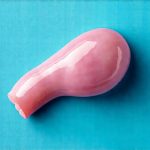Urinary tract infections (UTIs) are incredibly common, particularly among women. Many factors contribute to their development – anatomy, sexual activity, hygiene practices, and even genetics all play a role. However, the question of whether diet, specifically sugar intake, can influence UTI occurrence is one that frequently arises, often fueled by anecdotal evidence and online misinformation. It’s understandable why this connection is made; many people notice a correlation between consuming sugary foods or drinks and experiencing UTI symptoms, leading to speculation about a direct causal link. This article will explore the complex relationship between sweets, gut health, and UTIs in women, providing a nuanced understanding of current research and offering practical strategies for prevention.
The issue isn’t necessarily as straightforward as “sugar causes UTIs.” It’s more accurate to say that an excess of sugar can contribute to conditions that make someone more susceptible to developing a UTI. This is tied to the interplay between our gut microbiome, immune function, and the bacteria responsible for most UTIs – primarily Escherichia coli (E. coli). A diet high in refined sugars can disrupt the delicate balance within the gut, potentially weakening the body’s natural defenses against infection. It’s important to remember that numerous factors are involved, making it difficult to pinpoint sugar as a sole culprit but acknowledging its potential influence is crucial for informed health management. If you’re concerned about repeated utis, understanding these connections can be beneficial.
The Gut-Bladder Connection: How Diet Impacts UTI Risk
The link between gut health and urinary tract health isn’t immediately obvious, but growing research highlights a powerful connection. The gut microbiome – the vast community of bacteria residing in our digestive system – plays a critical role in overall immune function. A healthy gut microbiome strengthens the immune system, making it better equipped to fight off infections, including those affecting the urinary tract. Conversely, an imbalance in the gut microbiome, known as dysbiosis, can weaken immunity and increase susceptibility to UTIs. Refined sugars feed harmful bacteria in the gut, allowing them to proliferate and outcompete beneficial bacteria.
- This disruption can lead to increased intestinal permeability, often called “leaky gut,” where toxins and bacteria can escape into the bloodstream.
- These escaped pathogens may then travel to the urinary tract, increasing the risk of infection.
- Moreover, a compromised gut microbiome affects the production of short-chain fatty acids (SCFAs), vital compounds that support immune function and reduce inflammation throughout the body.
A diet consistently high in sugar doesn’t just affect the gut directly; it also impacts immune cell function. Excessive sugar intake can impair the ability of white blood cells to effectively kill bacteria, further compromising the body’s defense against UTI-causing pathogens like E. coli. The impact isn’t limited to just refined sugars. Even natural sugars in excessive amounts, such as fructose from fruits and honey, can contribute to gut dysbiosis if consumed in large quantities without adequate fiber intake. Therefore, moderation is key across the board.
It’s also important to note that E. coli, the most common cause of UTIs, often originates in the gastrointestinal tract. A compromised gut environment provides a breeding ground for this bacteria, increasing the likelihood of it migrating to the urinary tract and causing an infection. Maintaining a balanced gut microbiome is therefore not just about digestive health; it’s also about bolstering your body’s defenses against common infections like UTIs. Understanding utis cause confusion in some cases, can help you recognize warning signs.
Sugar & Bladder Irritation: Beyond Infection Risk
While the impact on gut health is significant, sugar can also directly irritate the bladder in some individuals. Certain sugars and artificial sweeteners have been shown to cause bladder sensitivity in susceptible people, exacerbating UTI symptoms or mimicking them altogether. This isn’t the same as causing an infection; it’s a matter of inflammation and irritation.
- Some women experience increased urgency, frequency, or discomfort when consuming sugary foods or drinks.
- These effects can be particularly pronounced in individuals with interstitial cystitis (IC), a chronic bladder condition characterized by pain and inflammation.
- Artificial sweeteners, while often marketed as a healthier alternative to sugar, can sometimes have the same irritating effect on the bladder for certain people.
The reason behind this irritation isn’t fully understood, but it may be related to how these substances interact with the bladder lining or influence nerve signals. It’s crucial to distinguish between genuine UTI symptoms and bladder irritation caused by dietary factors. A true UTI is typically accompanied by a burning sensation during urination, cloudy urine, and potentially blood in the urine, while bladder irritation may present as more generalized discomfort or urgency without these clear signs of infection. If you suspect a UTI, it’s essential to consult a healthcare professional for proper diagnosis and treatment; self-treating based on dietary assumptions can be dangerous. A doctor might also use uroflowmetry as part of the diagnostic process.
Dietary Strategies for UTI Prevention
Beyond simply reducing sugar intake, several dietary strategies can support urinary tract health and potentially reduce the risk of UTIs. Focusing on foods that promote gut health and strengthen the immune system is paramount.
- Increase Fiber Intake: A diet rich in fiber – from fruits, vegetables, whole grains, and legumes – nourishes beneficial gut bacteria and promotes a healthy microbiome. Fiber helps regulate bowel movements, reducing the likelihood of E. coli migrating from the gut to the urinary tract. Aim for at least 25-30 grams of fiber per day.
- Probiotic & Prebiotic Foods: Incorporating probiotic-rich foods like yogurt (with live and active cultures), kefir, sauerkraut, and kimchi can help replenish beneficial bacteria in the gut. Prebiotics – found in foods like garlic, onions, asparagus, and bananas – feed these good bacteria, further enhancing their growth and activity.
- Hydration is Key: Drinking plenty of water helps flush out bacteria from the urinary tract, reducing the risk of infection. Aim for at least 6-8 glasses of water per day. Staying adequately hydrated also dilutes urine, making it less hospitable to bacterial growth.
The Role of Cranberries and D-Mannose
Cranberry products are often touted as a natural remedy for UTIs. While research on their effectiveness is mixed, some studies suggest that cranberry compounds (specifically proanthocyanidins or PACs) can help prevent E. coli from adhering to the walls of the urinary tract. However, it’s important to note:
- Cranberry juice often contains significant amounts of sugar, which may negate its benefits and potentially exacerbate gut dysbiosis.
- Cranberry supplements, offering a concentrated dose of PACs without added sugar, may be a more effective option but should still be used with caution.
D-Mannose, a naturally occurring sugar found in some fruits, is another popular supplement for UTI prevention. It works by binding to E. coli in the urinary tract, preventing it from adhering to bladder walls and allowing it to be flushed out during urination.
- D-mannose has shown promising results in preventing recurrent UTIs but isn’t a substitute for medical treatment if an infection develops.
- It’s essential to discuss with your healthcare provider before taking any supplements, including cranberry or D-mannose, as they may interact with other medications or have unintended side effects.
Beyond Diet: Holistic UTI Prevention
While diet plays a role in UTI prevention, it’s just one piece of the puzzle. A holistic approach that addresses multiple risk factors is most effective.
- Hygiene Practices: Practicing good hygiene – wiping front to back after using the toilet, urinating after sexual activity, and avoiding harsh soaps or douches – can help minimize bacterial contamination.
- Clothing Choices: Wearing breathable cotton underwear and avoiding tight-fitting clothing can promote airflow and reduce moisture buildup in the genital area, creating a less favorable environment for bacteria.
- Regular Urination: Don’t hold your urine for prolonged periods. Frequent urination helps flush out bacteria from the urinary tract.
If you are experiencing recurrent UTIs it is important to rule out underlying issues such as bubble baths or other contributing factors.
Ultimately, understanding the connection between sweets, gut health, and UTIs is about empowering yourself with knowledge. While completely eliminating sugar may not be necessary or realistic for everyone, being mindful of your intake and prioritizing a balanced diet that supports gut health can significantly contribute to overall urinary tract well-being. Remember to consult with a healthcare professional if you experience UTI symptoms, as early diagnosis and treatment are crucial for preventing complications. It’s also important to consider whether utis trigger pain in other areas of the body. If you’re concerned about UTIs in infants, understanding if diapers cause them is also important knowledge. Finally, be mindful if you notice a metallic taste after a UTI.





















